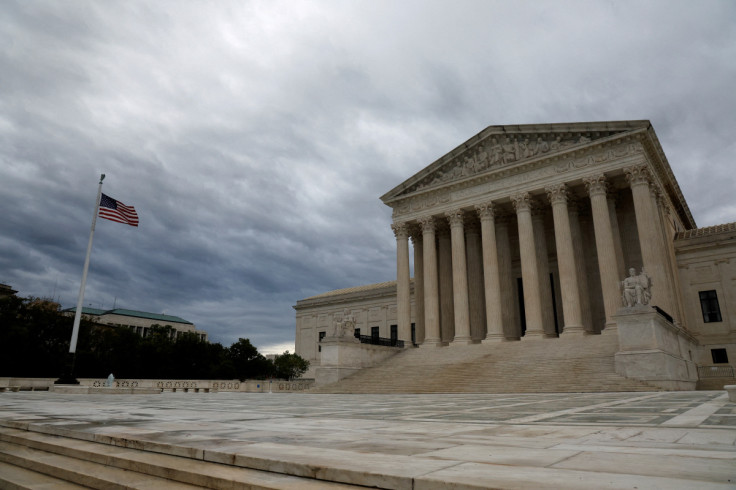US Supreme Court Weighs Foreign Reach Of Federal Trademark Law

The U.S. Supreme Court on Tuesday questioned the international limits of federal trademark law, hearing oral arguments from two industrial parts makers and the Biden administration in a case that could clarify when companies can recover for trademark violations that happen overseas.
Hetronic International, an Oklahoma-based subsidiary of Methode Electronics, makes remote-control systems for cranes and other industrial machinery. Hetronic Germany, which was later bought by Abitron Germany GmbH, distributed its products in Europe.
Hetronic sued Abitron and its affiliates in Oklahoma federal court for making and selling Hetronic-branded products with unauthorized parts. After a jury verdict for Hetronic, the court awarded it $114 million in damages, $90 million of which was for violations of federal trademark law.
The 10th U.S. Circuit Court of Appeals affirmed the verdict, despite Abitron's argument that it was a foreign company and the vast majority of the sales were in Europe.
The appeals court said Abitron's actions had a substantial effect on U.S. commerce and cost it millions in foreign sales. The court also said some of the infringing Abitron products sold overseas ended up in the United States, and there was evidence that they caused confusion among U.S. customers.
Abitron attorney Lucas Walker of MoloLamken told the justices Tuesday that the company should not be liable in the United States for conduct abroad, and that holding otherwise would risk causing "international friction."
Justices Elena Kagan and Ketanji Brown Jackson questioned Abitron's position.
"We're walking down the street in Manhattan and we see all of these fraudulent or fakely branded goods," Jackson said. "If they are made overseas and we can figure out who made them, wouldn't that be sufficient?"
"If the uses of the trademark confuse in the domestic market, that seems as though it should be enough," Kagan said.
Masha Hansford of the U.S. Solicitor General's office, arguing on behalf of the Biden administration, said U.S. law should apply only if the foreign acts are likely to confuse consumers in the United States, and that the 10th Circuit gave the law "sweeping extraterritorial reach."
Some justices expressed concern about the scope of the Solicitor General's argument, though others seemed to indicate some support for it.
"Would listing the product or the products' appearance on the internet anywhere always constitute causing confusion?" Chief Justice John Roberts asked. "You have to assume somebody's going to look at it at some point and might be confused. I don't quite know the extent to which your test has any limits at all."
Hetronic attorney Matthew Hellman of Jenner & Block said that "since 1952, this court has held and repeatedly reaffirmed" that U.S. trademark law "reaches infringement of U.S. marks that is carried out overseas."
Hellman also fielded questions about the scope of Abitron's argument.
"Beyond your jurisdictional point, I don't see what the outer limits are," Justice Clarence Thomas said.
© Copyright Thomson Reuters {{Year}}. All rights reserved.





















